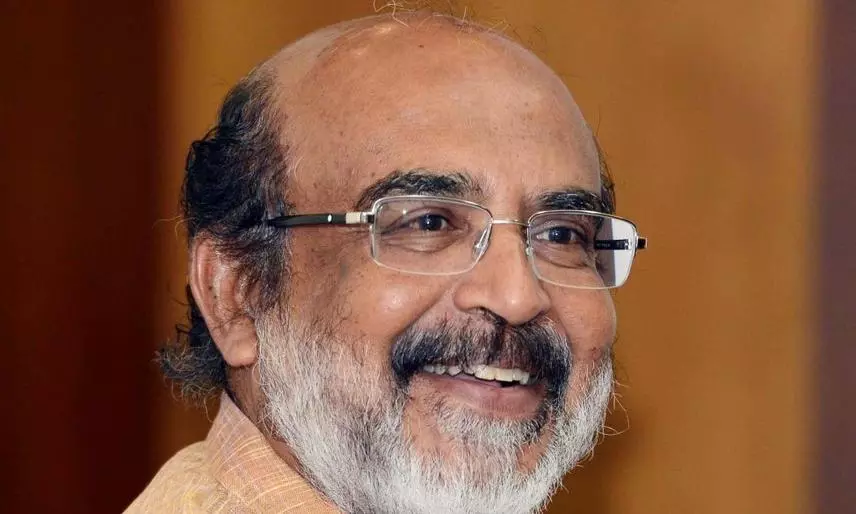BJP's "smart caste" move sets alarm bells ringing for CPM in Kerala

Thiruvananthapuram: The CPM in Kerala, which until recently believed that the BJP's rise would primarily affect the Congress, is now faced with the startling reality of its ideological adversary Sangh Parivar, making serious inroads into the Left traditional vote base, particularly among Hindus, in numerous constituencies.
In addition to securing its first victory in Kerala with the Thrissur seat, the BJP came first in 11 constituencies and second in five. Importantly, the BJP's growth in most constituencies came at the expense of the CPM.
The BJP's expansion has undoubtedly caused concern among the CPM leadership in Kerala. Dr T M Thomas Isaac, a former finance minister and member of the CPM central committee, who took to social media on the reasons for the LDF's defeat, acknowledges multiple reasons for the BJP's encroachment into the Left's support base.
He points out that the Sangh Parivar has effectively introduced the Hindutva brand of communalism into Kerala's political landscape, despite strong resistance from secular and democratic forces, as well as renaissance traditions. This strategy has contributed to BJP's increased vote share, not just in Kerala, but across the entire southern region.
Isaac points out that the BJP has cleverly utilised temples and associated religious bodies to their advantage. The CPM leaders and members stepping back from temple-related committees have only facilitated RSS's control over these institutions. Besides, the Sangh Parivar has effectively used social media platforms and WhatsApp groups to connect directly with different Hindu communities.
The CPM is concerned about the BJP's increasing influence among Kerala's caste and community groups, including the SNDP , NSS and Dalits. The Sree Narayana Dharma Paripalana Yogam (SNDP) represents the dominant OBC Ezhava community, which makes up 23 per cent of the state's population. This community has been the cornerstone of the Left movement for decades. Leaders such as Chief Minister Pinarayi Vijayan, former Chief Minister V S Achuthanandan, the late K R Gowri, E Balanandan and Suseela Gopalan belong to this community.
The SNDP in Kerala boasts of several ministers and MLAs. It is led by general secretary Vellapally Natesan, who also chairs the Navothana Samrakshna Samithi, established by the chief minister to uphold Renaissance values.
However, his son Thushanr Vellapally, holds the positions of President of Bharat Dharma Jana Sena (BDJS) and Convenor of the BJP-led NDA in Kerala. The BDJS has facilitated a direct connection between the BJP-RSS and the grassroots members of the SNDP at the micro-Shakha level.
Additionally, Vellapally Natesan's frequent criticisms of Muslims and allegations of appeasement have significantly boosted the BJP's communal campaign.
The Nair Service Society (NSS), representing the influential forward caste Nair community, has officially maintained a distance from the BJP-RSS. However, observers say its members in Karayogams (micro-level units) have significantly shifted towards the BJP.
While NSS General Secretary G Sukumaran Nair consistently advocates for an equidistance policy, he frequently voices opposition to the CPM-led government. During the last assembly elections in 2021, Nair publicly called for the defeat of the CPM on the day of polling.
Political observers state that Sukumaran Nair has no reason to be angry with CPM, considering the Pinarayi Vijayan government has generously accommodated the community including on the issue of EWS. Out of the 21-member Pinarayi Vijayan Cabinet, 9 ministers belong to the Nair community, which makes up for 14 per cent of the state's population.
Dalits, who are 10 per cent of the state's population, have traditionally been supporters of the Left parties. However, there is no Dalit representation in the LDF cabinet at present. Notably, the BJP has succeeded in making inroads into the Dalit communities in districts like Palakkad, Thiruvananthapuram, Kollam and Thrissur which is a cause for concern for the CPM.
In addition to Hindus, the BJP has made significant gains within the Christian community, which makes up 18 per cent of the state's population. According to Isaac, a faction known as the Krisanghis (Christian Sanghis) has come up within the Christian community, united by animosity towards Muslims. This group's impact is noticeable even within the Kerala Council of Churches, an entity previously known for its progressive views.
The Left leaders believe that an effective political and tactical line will have to be formulated after a correct assessment of the above factors.
It needs to be examined minutely which sections among the Hindu communities have shifted and to what extent. And whether it is only floating votes or a permanent shift.
Given that the BJP's expansion is inconsistent throughout the state, the CPM remains optimistic about developing a counter strategy to recover the ground it has lost, leveraging its robust organisational network.
